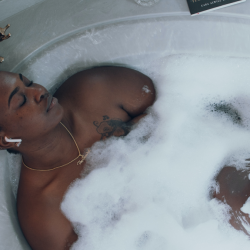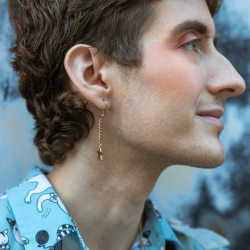We care a lot. The proof is all around us. Social media. News channels. Community notice boards. It feels like we’ve never cared more. The straw you suck your Fair trade frappé through. The joke your favourite comedian made ten years ago. Your morning supplement sequence. Whether you check in on your chums enough. The words you use to describe… well anything actually. Whether you’re OK or not. You name it and there’s a group of us that care about it.
But do we care too much? Is there an unrealistic expectation to care? Is all this caring actually doing us harm?
Who cares?
Care is personal. It’s something we choose to give or do. We decide who and what we care about and care for. When you get to know someone it’s easy to understand what they care about. Their behaviour might give it away. The way their eyes light up when you mention their favourite subject. The way their brow furrows when you share your opinion on the latest headlines.
At a personal level we can also gauge how much someone cares. Things get a bit murky when we care en masse, or if it’s an institution that cares.
Social care
Social media is all about the cares. Or is it Likes? How about Supports? With so many ways to show that we care about something it’s hard to know what’s most fitting. Do I care enough to comment or share or will a simple Celebrate reaction convey my intentions? Does the dopamine hit from likes and comments carry the same value as direct support? To paraphrase someone I care about, social media is a lot like a fart in a colander.
Institutionalised care
Can an institution care? No. But they can be caring entities, that enable people to care and be cared for. They can foster a caring culture. An environment in which opportunities to care and to seek care are forthcoming. Where its people follow the rules of engagement and best practice. It’s people that care.
Unfortunately, it’s also people that don’t care:
Your line manager that’s too stressed to care that you’re overworked, or who has never been given the skills to manage or lead.
The caregiver employed by your local NHS trust, whose heart isn’t quite in the job.
The mental health ambassador whose priority is kudos over kindness.
Just because one person in an institution is uncaring doesn’t mean everyone else is the same. But care only really exists at a personal level. If you have an uncaring experience, you don’t care if everyone else enjoys a caring one. When an institution’s people don’t care we are left with an illusion of care. One that is part of an institution’s identity, part of its brand.
The illusion of care
Here’s the twist, an illusion of care is not a bad thing. There is something quite placebo-like about it. If the writing on the wall promotes ideas of care, a caring culture will begin to surface. Caring individuals will step forward and ones in need of care will seek it. The conversation and belief that care exists is the catalyst for care to happen.
Those that never need access to care believe it exists. They will look out for their peers. Those that have an uncaring experience will help shape what happens next. People that don’t care tend to squeeze themselves out of caring environments, sooner or later. The conversation about care needs to exist for there to be care.
A careful conclusion
Caring happens at a person-to-person level. Caring takes energy and patience. You don’t need to care about everything social media would have you believe. Don’t concern yourself or waste your energy on things you have no control or influence over. There’s no FOMO when it comes to caring. If you see something you feel strongly about, reach out directly to those concerned. Make a caring connection. But only if you are in a position to make that care count. Making sure your oxygen mask is on before helping others is a powerful analogy for a reason.
If you are part of any institution, remember that the institution itself can’t be the care provider. That responsibility lies with its people. It can define and create the environment in which care happens. Enabling genuine care among its people. If you see uncaring acts, call them out or offer care yourself if you are able and in a position to.
Try to remember, those that seem uncaring are often the ones that need care.
Featured image: Mariana Ayumi / Pexels



































